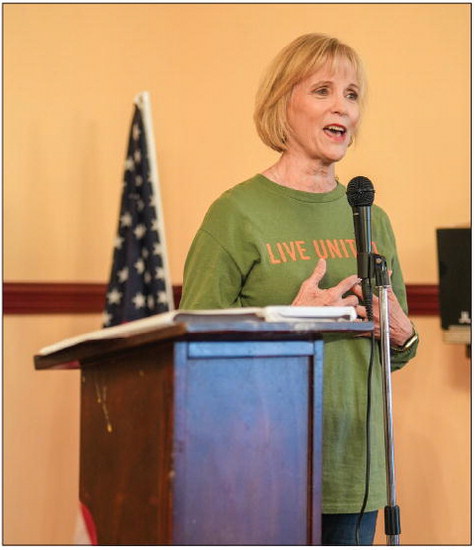Independent redistricting commissions getting mixed results
Invariably, the once-adecade partisan redrawing of congressional and legislative districts in Georgia is accompanied by calls for taking that task away from the General Assembly and giving it to an independent commission. Just as surely, leaders of the legislature’s majority party dismiss the idea as impractical. “The [U.S.] Supreme Court says redistricting is inherently a political process,” Georgia House Speaker David Ralston, R-Blue Ridge, said late last month after his Republican- controlled chamber approved a new congressional map aimed at increasing the GOP’s hold on Georgia’s congressional delegation. “You can’t take it out.” But many states are trying to take politics out of redistricting, although with mixed results. Ten states have created independent redistricting commissions to draw congressional maps for their states, while 15 have formed commissions to handle redistricting of state legislative districts, according to the National Conference of State Legislatures.
Still others have created commissions that advise their legislatures on redistricting but don’t have the final say over maps.
Georgia has flirted with the idea of independent redistricting. Then-Republican Gov. Sonny Perdue introduced a constitutional amendment in 2007 to establish an independent commission to redraw Georgia’s legislative and congressional district boundaries following each U.S. Census update. “The people should pick their legislators, not the other way around,” Perdue said at the time. “You can’t take politics out of politics, but an independent commission would come closer.” Nothing came of the GOP governor’s proposal, and legislative Democrats pushing independent redistricting more recently have fared no better. Redistricting legislation state Sen. Elena Parent, D-Atlanta, and Georgia Rep. Matthew Wilson, D-Brookhaven, introduced into their respective chambers this year has fallen on deaf ears thus far, continued from page
but both measures remain alive heading into the 2022 General Assembly session.
Some states that have chosen to go with independent redistricting have run into bumps along the way. Ralston cited Virginia, Ohio and the state of Washington as examples.
In all three states, redistricting commissions missed deadlines this fall for delivering their recommendations, citing delays in delivery of census data caused by the coronavirus pandemic. Missing those deadlines forced them either to turn over the job to the state legislature or – in Virginia’s case – have the state Supreme Court choose a special master to draw new maps.
Even when redistricting commissions have met their deadlines, they have been subject to the same accusations of partisanship that plague maps drawn by state legislators, particularly in the way commission members are chosen. “The California approach tried to keep partisanship out,” said Charles Bullock, a political science professor at the University of Georgia who has written extensively about redistricting.
“There was a lengthy selection process, and candidates had to jump through a series of hoops. [But] some argued Democrats figured out how to get their partisans through the selection process.”
In New Jersey, an equal number of Republicans and Democrats were appointed to the redistricting commission, but the chairman was given the deciding vote in case of ties, Bullock said. Whichever party the chairman supported thus got the advantage, he said.
Parent said the key to success with redistricting commissions lies in the membership selection process.
“You need to make sure the people on it are actually independent, or if members of a party are on it, they’re not elected,” she said.
Parent also opposes creating commissions that let legislatures have the final say over their recommendations.
“[Commissions] need to have powers to reform, to have teeth,” she said.
Bullock said Iowa stands out as a state that has carried out independent redistricting successfully for years.
Rather than have a commission draw the maps, Iowa gives that role to Iowa’s Legislative Services Agency. Under state law, maps are not allowed to protect incumbents.
“The legislature can reject their proposals,” Bullock said. “After two rounds of rejection, the legislature takes it over. But with the congressional plan, that’s never happened.”
Republican legislative leaders in Georgia aren’t anxious to voluntarily give up their power over redistricting to an independent commission.
Democrats weren’t either in 2001, the last time they controlled the General Assembly during redistricting and drew heavily gerrymandered maps to try to retain legislative majorities in a state that was fast trending Republican. That strategy ultimately failed when the GOP won full control of the General Assembly in 2004.
Bullock said Republican worries of a similar meltdown after the 2030 census could create the only scenario that might convince GOP leaders to change their minds about turning over redistricting to an independent commission.
Georgia has been trending Democratic in recent years, as shown by Stacey Abrams’ narrow loss to Republican Gov. Brian Kemp in 2018 and the capturing of Georgia’s two U.S Senate seats in last January’s runoffs by Democrats Jon Ossoff and Raphael Warnock. Minority population growth across metro Atlanta during the last decade makes it likely Democrats will gain seats in the General Assembly next year, even in districts that have been redrawn by Republicans.
“In 2030, if the Democrats are poised to take over the legislature, the Republican majority might say, ‘We can’t let control go over to the Democrats. Let’s create an independent commission,’ ” Bullock said.
Absent creating an independent redistricting commission, Parent said help in making redistricting in Georgia less partisan could come from the federal level.
The Freedom to Vote Act Democrats have introduced in the U.S. Senate would prohibit drawing maps for partisan advantage. However, Republican opposition to the bill in the 50-50 Senate renders its chances dubious at best.







